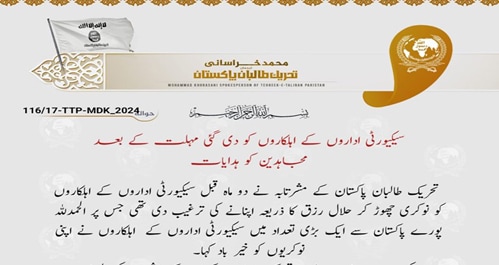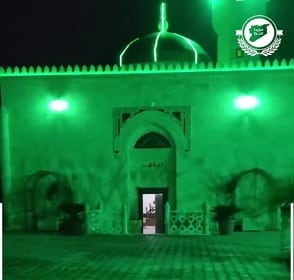The following report is now a complimentary offering from MEMRI's Jihad and Terrorism Threat Monitor (JTTM). For JTTM subscription information, click here.
On April 18, 2024, the press office of Qais Al-Khazali, the Secretary General of Iran-backed Iraqi Asa'ib Ahl Al-Haq Movement received a delegation from the Yazidi community of Sinjar, in northern Iraq.[1]
The statement, which was published on Telegram, cited Al-Khazali telling the delegation that he supports their endeavors to restore the rights which were taken away from by the previous regime due to political deals.

The statement reads: "Sheikh Al-Khazali assured the Sinjar delegation of his determination to stand by their side at all times, in addition to making every effort to restore their rights that they were deprived of by previous oppressive regimes and political agreements that wanted to impose control over them for many years."
Explaining the goal of the visit, the statement noted that the Yazidi delegation wanted to congratulate Al-Khazali on the occasion of Eid Al-Fitr. On his part, Al-Khazali congratulated the visiting delegation on the Yazidi New Year, said the statement.
The statement concluded with the Yazidi delegation expressing support for the presence of the Popular Mobilization Units (PMUs) which are deployed in Sinjar.

Background
The PMU is an Iraqi state-sponsored umbrella organization composed of approximately 67 distinct armed factions, including some Iran-backed militias that took part in the fight against the Caliphate declared by the Islamic State (ISIS) in 2014.
In August 2014, ISIS attacked Sinjar, the northern Iraqi Yazidi homeland. More than 400,000 Yazidis fled their homes and tens of thousands took refuge on Mount Sinjar where they remained stranded and hungry for weeks.
[1] Telegram, April 18, 2024.
The full text of this post is available to subscribers.
Please login or register to request subscription information from MEMRI






